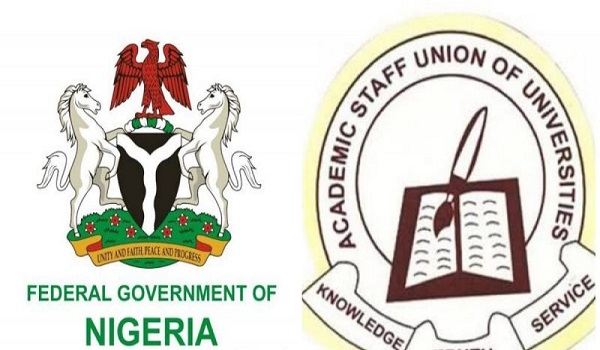Facts have emerged on why the Federal Government reversed itself on the decision to reopen public universities despite the ongoing strike by members of the Academic Staff Union of Universities, ASUU.
It was gathered that pressure from opinion leaders and other stakeholders interested in resolving the face-off between the union and the government led to the government asking that the circular, earlier sent to mandate the reopening of the universities, be withdrawn.
“After the circular became public and people started interpreting what the consequences could be, it was agreed that the circular is withdrawn to also allow for more negotiation between the government and the union,” a source said.
The Acting Director of Public Affairs, the National Universities Commission, Mr Ayo Haruna, confirmed to our correspondent the withdrawal of the circular dated September 23, this year.
The latest circular calling for the nullification of the previous one was dated September 26, 2022, and signed by the same person, Mr Sam Onazi, the Director of Finance and Accounts, NUC. It was referenced NUC/ES/138/Vol.64/ 136.
The circular stated thus: Re: Forwarding of court judgment and enforcement of the order by the National Industrial Court of Nigeria, NICN, in suit No NICN/ABJ/270/2022:
Withdrawal of circular Ref NUC/ES/138/Vol.64/135.
“I have been directed to withdraw the National Universities Commission, NUC, circular Ref: NUC/ES/138/Vol.64/135 and dated 23rd September 2022 on the above subject. Consequently, the said circular stands withdrawn.
“All Pro-Chancellors and Chairmen of Governing Councils, as well as Vice Chancellors of federal universities are to please note. Further, development and information would be communicated to all relevant stakeholders.”
Earlier, while reacting to the directive for the universities to be reopened, the National President of ASUU, Prof. Emmanuel Osodeke, had told Vanguard that the FG was not talking to his members.
“We are not holding the keys to the campuses. We did not shut down any university. Those who shut down the universities are the ones who can decide whether to open them or not. As for us going back to work, the government is not taking to us. We did not institute the case at the industrial court, some people took us there and we have done the needful of exercising our right to appeal,” he said.
On when the appellate court would hear the matter, Osodeke said no date has been fixed yet.
Meanwhile, the Congress of University Academics, CONUA, another academic staff union in the university system seeking registration, has said its members are ready to resume duty.
The National Coordinator, Dr Niyi Sunmonu, told our correspondent that his members were never on strike.
“We did not go on strike in the first instance and we were working until the managements of the universities shut down the institutions. For instance, some of our members, including me, concluded our workloads before the closure. We are only unhappy that our members were lumped up with those who went on strike and our salaries not paid,” he said.
In a related development, non-academic staff who suspended their industrial actions in August are yet to be paid their withheld salaries.
Findings by Vanguard showed that though they suspended their actions for two months and subsequently resumed work, they were last paid in March, this year.
Speaking in an interview, the Chairman of the Senior Staff Association of Nigerian Universities, SSANU, the University of Lagos chapter, Comrade Olusola Sowunmi, said his members expected that at least a month’s salary be paid to them for easy commuting between homes and their offices.
He added that the development had put his members in a tight corner.
SSANU, the Non-Academic Staff Union of Educational and Allied Institutions, NASU and the National Association of Academic Technologists, NAAT, also went on strike last March but suspended action for two months in August.
ASUU went on strike in March 2020 and only called it off in December of the same year.
Unfortunately, most of the demands by the union then still formed part of its current agitation.
After the 2020 face-off, a Memorandum of Action was endorsed by both parties are timelines agreed as to meeting some demands, but the government said the paucity of funds hindered it from meeting some of the demands.
The demands of the unions include the alleged inconsistencies in the Integrated Payroll and Personnel Information System, IPPIS, the non-payment of earned allowances, payment of arrears of the National Minimum wage, the revitalization fund and the release of white papers on the visitation panel reports among others.
While ASUU has developed its preferred payment platform, the University Transparency Accountability Solution, UTAS, the two non-teaching staff unions of SSANU and NASU demanded the replacement of IPPIS with the University Peculiar Personnel Payroll System, U3PS.
The Federal Government through the Minister of Labour and Employment, Senator Chris Ngige, had met with the striking lecturers to resolve the impasse but all to no avail.
This culminated in the evocation of the “No work, no pay” policy by the government and the dragging of the striking workers to the National Industrial Court of Nigeria, NICN.

